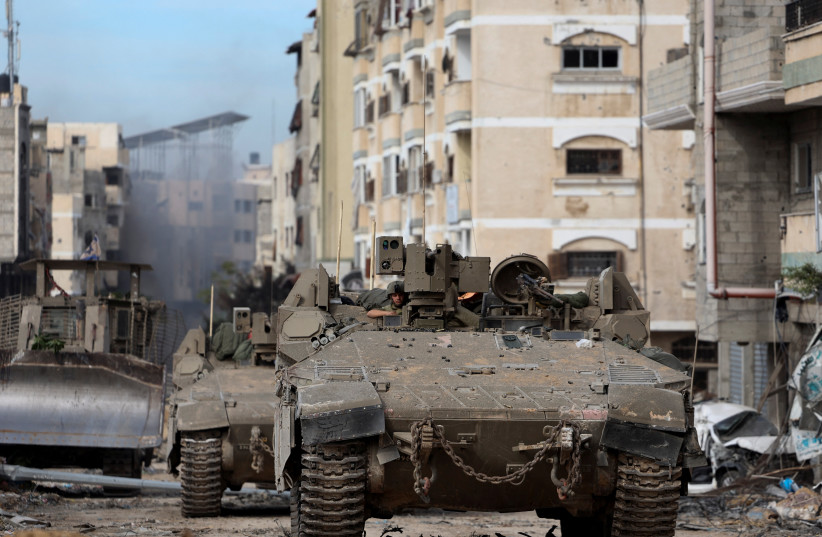The New York Times was criticized on Monday for publishing a guest essay by Yahya Sarraj, the Hamas-appointed mayor of Gaza City, condemning Israel's prosecution of its war against Hamas in the Gaza Strip.
The essay, entitled I am Gazy City's Mayor. Our Lives and Culture Are in Rubble, ran on Sunday, December 24. In the essay, Siraj wrote of an "unrelenting destruction of Gaza- its iconic symbols, its beautiful seafront, its libraries and archives and whatever economic prosperity it had."
"Why did the Israeli tanks destroy so many trees, electricity poles, cars and water mains?" Sarraj asked. "Why would Israel hit a U.N. school?" Sarraj wrote that he "can't imagine how any sane person could engage in such a horrific campaign of destruction and death."
Sarraj was appointed mayor of Gaza City by Hamas in 2019 as part of a broader appointment of local leaders that sparked controversy at the time, as members of the opposing Palestinian faction Fatah, led by Mahmoud Abbas, decried it as undemocratic, according to a report from the time by the London-based newspaper Asharq al-Aswat.
Before his appointment, Sarraj served as deputy chairman of external affairs at the Islamic University of Gaza, and is also a former rector at Gaza's University College of Applied Sciences.

Mayor references 'the deadly attack by Hamas'
"I, too, have lost a loved one," Sarraj wrote in the piece. "Without warning, a direct hit to my house on Oct. 22 killed my eldest son, Roshdi, a photojournalist and filmmaker." Sarraj said, "it made [him] wonder if [he] could have been the target."
The Gaza City mayor "call[ed] on the world's municipalities - everyone- to pressure world leaders to stop this mindless destruction," asking, "Why can't Palestinians be treated equally, like Israelis and all other peoples in the world? Why can't we live in peace and have open borders and free trade?"
Sarraj did make a brief reference to Hamas's October 7 attack, writing that "when Israel began its war on Gaza in response to the deadly attack by Hamas, I was abroad."
Critics assailed the New York Times, which was previously the site of a small in-company revolt, for publishing an op-ed by Senator Tom Cotton during the protests and riots following the death of George Floyd in Minneapolis in 2020, for giving a platform to someone affiliated with the terrorist group.
Scott Johnson, a conservative attorney writing for the blog Powerline, questioned the legality of publishing Sarraj's essay: "As the Hamas-appointed mayor of Gaza City," Johnson wrote, "Sarraj must be a senior official of a foreign terrorist organization designated as such since 1997 pursuant to United States law. Accordingly, it's illegal for Americans to render material assistance to it."
Others merely viewed the editorial choice as hypocritical, given the newspaper's previous sensitivity.
